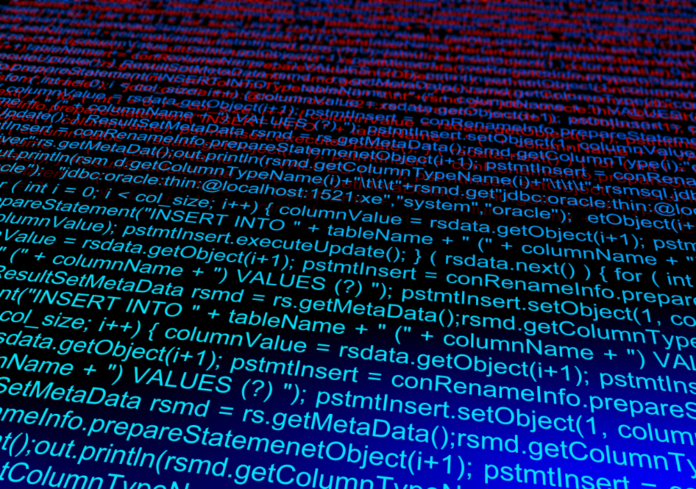
Blockchain and Cryptocurrency continue to solve a lot of problems in our world today through different means and smart contract is one of those means.
What is a Smart Contract?
From the words “smart” and “contract”, smart contracts can simply be defined as agreements reached in a more refined manner. The refined manner in this context is the computer code used in creating and storing an agreement, which means agreements are now computerized.
Smart contracts are responsible for easy, safer, and faster agreements between two parties without the involvement of a third party. It runs on a public blockchain network which makes it visible to everyone and difficult to be tampered with.
Let’s take for example; Mr. John wants to purchase a house from Mr. David. The agreement will be stored on a blockchain network such as Ethereum and it will read something like, “When John pays David 150 Ether, house ownership will be transferred to John”. Simple, isn’t?
The above agreement made on a blockchain will be verified and witnessed by hundreds of people. So, one can be rest assured his/her agreement will be duly carried out as arranged.
With the adoption of smart contracts, both John and David will be able to avoid extra expenses like agent fees and the complications that come with having to deal with the law, witnesses, and so on.
Smart Contract has more uses than just house ownership dealings. It is effective in handling trades for property, money, and anything valuable; ensuring total accountability, eliminating the middleman’s services, costs involved and eliminating the trust issues between the parties. A specific smart contract code contains all the terms & conditions agreed upon by the parties, and the transaction information is registered in a Blockchain.
Benefits of Smart Contracts
Let’s look at how some sectors/industries will benefit from the numerous possibilities of the smart contract.
Government
Smart contracts can help organize and run a free and fair election in any country. The voting process can be created and stored in a blockchain and thus cannot be changed or tampered with. When the voting is over, a token will be sent to an address that proclaims a winner.
Health Sector
Encrypgen is one of those projects running on a blockchain that adopts the usage of smart contracts. On Encrypgen, the smart contract makes it possible to transfer a patient’s data easily and safely without the interference of a third party. Patients are in charge of their data and can only release it if they deem fit to researchers that will pay in return.
Insurance Companies
Insurance companies can adopt the smart contract means, in which an agreement is reached for customers to be compensated in the case of any unfortunate incident.
Businesses
Businesses can use smart contracts to save extra costs of hiring workers that handle several duties like preparing payroll. An agreement will be reached in a smart contract for a particular payment to be given to a particular person and at a particular period of time.
Issues Facing Smart Contracts
As with everything with an advantage in life, there is also a disadvantage and that goes for Smart Contracts as well. Several issues facing smart contracts include: –
Development Issues
Smart contract codes are created by humans and there can be mistakes in the process of creation leading to hackers manipulating the agreement/contract. Similarly, there can be bug issues.
Law
There is currently no governmental law regulating smart contracts and in case of any fraud or extortion experienced, the law has no hand in it. Also, the government can decide to ignite a legal status for smart contracts anytime.
Speed and Scalability
Current blockchain networks for smart contracts execute transactions at a slow speed thus making it difficult to scale to millions of users.
Human Factor
Once an agreement is reached and recorded in the system, it cannot be changed. In the event that a seller or buyer decides to change their minds, there is nothing they can do to alter or call off the agreement.
Implementation Cost
It is imperative that a highly professional developer is recruited to code the smart contracts and the cost of hiring one or coding on a sophisticated blockchain network is very high.
Above are the disadvantages of smart contracts and next, we will be reviewing how Algorand is tackling these issues.
Algorand, a uniquely secure, scalable, and decentralized blockchain released dual methods to solve smart contract issues.
Algorand Smart Contracts at Layer-1 (On-chain)
Layer-1 contracts allow for atomic transfers, a system which guarantees that several transactions approved by mutually doubtful parties are carried out as a single atomic unit: either all or none succeed.
Algorand Layer-1 contracts also offer direct support for crowdfunding, securitized loans, multi-sig wallets, as well as other easy, recurring types of transactions.
Algorand Layer-1 smart contracts are coded using Transaction Execution Approval Language (TEAL); an assembly-like language interpreted by Algorand nodes. TEAL provides programmers with the ability to introduce common transactions, examine account balances, and other blockchain assets. TEAL can also provide improved security guarantees for contracts made off-chain.
Algorand Smart Contracts at Layer-2 (Off-chain)
The layer-2 version of smart contracts on Algorand provides more specialized tools for those who desire more complex blockchain transactions.
The contract execution committee is selected by a safe and randomized self-selection algorithm that Algorand uses. Since contract execution is deterministic, unlike block consensus, the contract execution committee will achieve the same degree of security with considerably fewer validators.
Algorand’s off-chain smart contract code is written in a language which is a bit complex and is implemented by a virtual machine. An off-chain contract can last for a long time and it is called contract storage. The contract storage does not show up on the blockchain due to privacy. However, for security, each contract request updates a pledge to the new contract storage. Off-chain contracts can access account balances and other on-chain data, and they can make transactions that change the blockchain state, such as payments.
What happens when a contract request constantly passes contract execution committee approval but never gets into the chain because its one-chain commitments are consistently violated? Regular checks are quicker and more secure than cashier checks, but even though there’s enough money in the account when a check was signed, it may still bounce. Nonetheless, while checks often bounce, they are used more frequently than checks by cashiers and most check-writers do not overdraw their accounts. Off-chain contracts can often fail, but we expect them to succeed most times, since their dependencies are often managed by the user, and users can avoid breaching their own commitments.
Final Thoughts
Several blockchain projects have created their version of smart contracts but that of Algorand stands out at the moment. With a highly professional team, Algorand continues to provide unique features that attract developers, blockchain incubators, tech enthusiasts, financial institutions, crypto enthusiasts, disruptors, universities, local enterprises, thought leaders, and investors seeking financial freedom to the network.
Get in touch with Algorand:
Official Website: https://www.algorand.com/wallet
Telegram: https://t.me/algorand
Twitter: https://twitter.com/Algorand
LinkedIn: https://www.linkedin.com/company/algorand/
Guest post contributed by Helen IMAH – Algorand Ambassador
This is a guest featured post by a third party. BlockNewsAfrica urges users to do their own research before investing in projects or using products or services.
The post Encountered Issues With Smart Contracts And How Algorand Tackles Them appeared first on BlockNewsAfrica.

TheBitcoinNews.com – Bitcoin News source since June 2011 –
Virtual currency is not legal tender, is not backed by the government, and accounts and value balances are not subject to consumer protections. TheBitcoinNews.com holds several Cryptocurrencies, and this information does NOT constitute investment advice or an offer to invest.
Everything on this website can be seen as Advertisment and most comes from Press Releases, TheBitcoinNews.com is is not responsible for any of the content of or from external sites and feeds. Sponsored posts are always flagged as this, guest posts, guest articles and PRs are most time but NOT always flagged as this. Expert opinions and Price predictions are not supported by us and comes up from 3th part websites.
Advertise with us : Advertise
Our Social Networks: Facebook Instagram Pinterest Reddit Telegram Twitter Youtube











